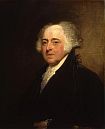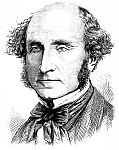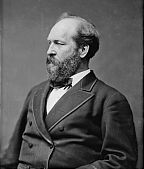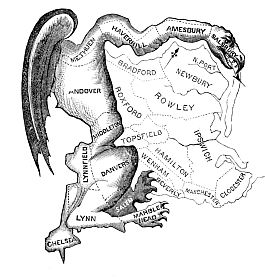Proportional
Representation:
Should
all Voters be Represented in the Legislature?
Warning: Polemic Article!
Do you think that you should be
represented in your legislature? You
might reply that you would like to be represented in the legislature,
but since this is a democracy your candidate has to win an election
first! On the other hand, if 40 percent of the voters fail to
gain ANY representation in a legislature; then can laws enacted by that
legislature possibly represent the will of the majority of the voting
citizens? The majority of the representatives elected to the
legislature does not reflect the will of the majority of the voters.
Forty percent of the electorate have no representation in the
legislature.
This flaw
in single member district elections for legislatures has been widely
understood since 1860. Proportional representation, an electoral system
that uses multi-member districts, is the most widely used solution to
this problem.
The case for proportional
representation is fundamentally the same as that for representative
democracy.
Only if an assembly represents the full diversity of opinion within a
nation can its decisions be regarded as the decisions of the nation
itself.
Encyclopedia
Britannica
Note:
The phrase "proportional representation" does not refer to some
theoretical form of representation. Most of the worlds
democracies use some form of proportional representation in at least
one of their national legislatures.
Examples of Proportional Elections:
Democratic
Republic of Brazil
British EU
election
Advocates
of proportional voting systems propose that the legislature should be
more like a mirror of the population, with majority and minority
viewpoints represented. Proportional representation advocates
still believe in majority rule, because proportional systems accurately
translate the popular vote into representation. The
candidates or
parties with the greatest support should obtain the largest share of
seats in a legislature. If the representation in the
legislature
is
not proportional to the voting population, then the laws will not have
a
democratic foundation.
================================================
If
you would like to know how proportional representation works,
the
following links will get you started.
The Case
for Proportional Representation,
by Robert Richie and Steven
Hill
"Proportional
representation (PR) is based on the principle that any group of
like-minded voters should win legislative seats in proportion to its
share of the popular vote. Whereas the winner-take-all principle awards
100 percent of the representation to a 50.1 percent majority, PR allows
voters in a minority to win their fair share of representation."
"How
does this work? A typical winner-take-all system divides voters into
"one-seat districts," represented by one person. With PR, voters in a
constituency instead have several representatives: ten one-seat
districts might, for example, be combined into a single ten-seat
district. A party or group of voters that wins 10 percent of the
popular vote in this district, then, would win one of the ten seats; a
party or slate of candidates with 30 percent of votes would win three
seats, etc. Various mechanisms work to provide proportional
representation, and the details of different systems matter. But the
principle of full representation is fundamental. Acceptance of it
changes the way one sees electoral politics."
How
Proportional Representation Elections Work
"We in the United States are
very used to our single-member district, winner-take-all style of
elections. We've all grown up with a system where we elect members of
our legislatures one at a time in small districts, with the winner
being the candidate with the most votes. This system seems so "natural"
that proportional representation (PR) elections may at first appear a
bit strange to us. Adding to the potential confusion is the fact that
there are several different kinds of PR systems in use around the
world. But in reality, the principles underlying proportional
representation systems are very straightforward and all of the systems
are easy to use."
The
Secret of the Two-Party System.
Discover
the only "law" in political science!
Duverger's
law
In political science, Duverger's
law is a principle which asserts that a plurality
[winner-take-all] election system tends to favor a two-party system.
This is one of two hypotheses proposed by Duverger, the second stating
that a majority [run-off election] system, and proportional
representation tend to multipartism.
Full permission for non-profit distribution
|
John Adams
John Adams, 2nd President,
Thoughts on
Government, 1776
"The
principal difficulty lies, and the greatest care should be employed
in constituting this representative assembly. It should be in miniature
an exact
portrait of the people at large. It should think, feel, reason and act
like
them. That it may be the interest of the assembly to do strict justice
at all
times, it should be an equal representation, or, in other words, equal
interests
among the people should have equal interests in it. Great care should
be taken
to effect this, and to prevent unfair, partial and corrupt elections."
John
Stuart Mill
John
Stuart Mill,
Considerations on Representative Government (1861)
"The
Electors [voters] who are on a different side in party politics from
the
local majority are unrepresented... [This system] is diametrically
opposed to the first
principle of democracy, representation in proportion to numbers."
James
Garfield
James
Garfield, U.S. President (1881)
"[I]t is a
weak point in the theory of representative government as now organized
and administered, that a large portion of the voting people are
permanently
disenfranchised."
The
Economist [1991 Editorial]
"The
current 'first-past-the-post' system is undemocratic. On that ground
alone,
it needs to be replaced."
Professor
Douglass Amy, Real Choices, New Voices,
Columbia University Press, New York, 1993
"Gerrymandering
is one of the great political curses of our single-member district
plurality system and one that can only truly be lifted by adopting
proportional
representation."
Original cartoon of "The
Gerry-Mander"
This is the political cartoon that led to the coining of the term Gerrymander. The district
depicted in the cartoon was created by Massachusetts
legislature to
favor the incumbent Democratic-Republican
party candidates of Governor
Elbridge Gerry over
the Federalists in 1812.
Vote for Better Tape
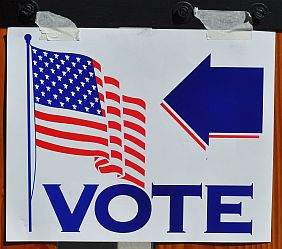
|
